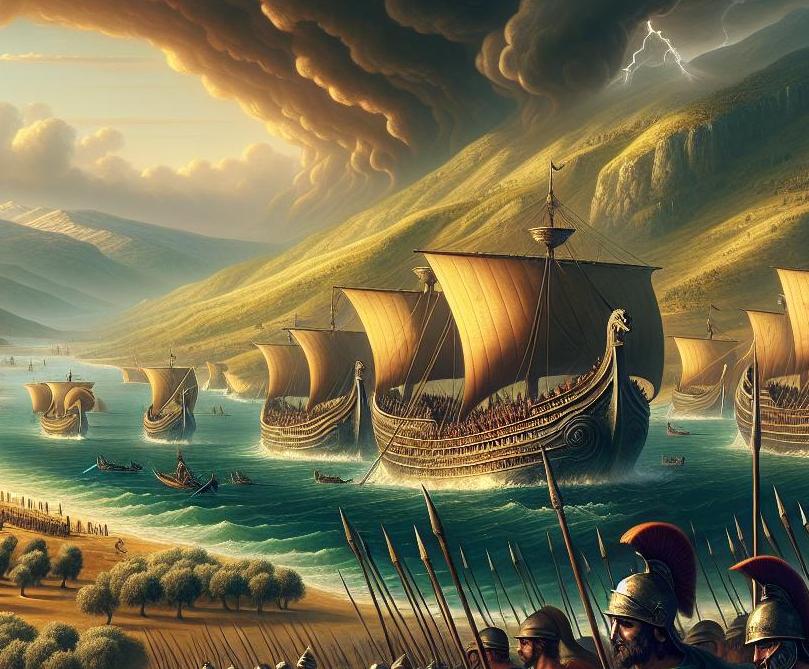Carthage: A Maritime Empire
Carthage, founded by Phoenician settlers around 814 BCE, grew into a powerful maritime empire known for its extensive trade networks and naval supremacy. Located in present-day Tunisia, Carthage’s strategic position on the coast allowed it to control key trade routes across the Mediterranean. Carthaginian merchants traded goods such as metals, textiles, and luxury items, linking markets from the Levant to Spain. The wealth generated from trade and commerce enabled Carthage to build a strong navy, which protected its interests and facilitated the expansion of its influence. The city itself was a bustling hub of economic activity, with impressive harbors, warehouses, and marketplaces.
Culturally, Carthage was influenced by its Phoenician roots, maintaining religious practices and artistic traditions from its mother city, Tyre. The Carthaginian pantheon included gods such as Baal Hammon and Tanit, who were worshipped in grand temples. Carthage’s political system was an oligarchy, dominated by a wealthy elite of merchants and landowners. The city’s governance was managed by a council of elders known as the Senate, along with elected magistrates.
This system provided stability and continuity, allowing Carthage to focus on economic expansion and military ventures. Carthage also established colonies and trading posts throughout the western Mediterranean, including in Sicily, Sardinia, and Iberia. These outposts served as vital links in its trade network and provided resources and strategic bases for its navy. The Carthaginian military relied heavily on mercenaries, recruited from various regions, including Iberia, Numidia, and Gaul.
This diverse composition allowed Carthage to field effective and adaptable forces in its campaigns. By the time of the Punic Wars, Carthage had established itself as a dominant maritime power with a thriving economy and a formidable navy. Its rivalry with Rome was fueled by competition for control over trade routes and territorial expansion, setting the stage for the epic conflicts that would ensue.
 |
 |
 |


